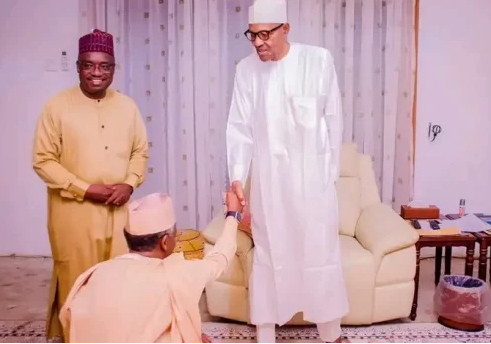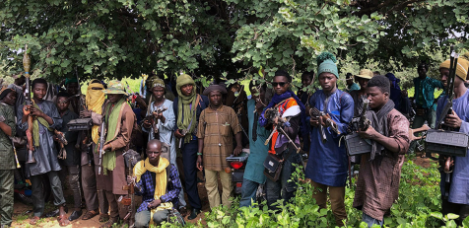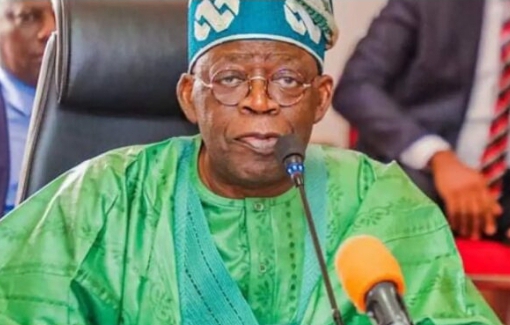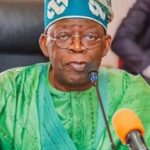[By Idowu Faleye: +2348132100608]
“What man is that? A soothsayer bids you Beware the Ides of March.” – William Shakespeare, Julius Caesar. Much like Julius Caesar, who was warned of impending danger, President Bola Tinubu faces a political landscape fraught with hidden threats and power plays. As Nigeria inches closer to the 2027 presidential election, one figure looms large in the shadows—Nasir El-Rufai. A key ally in Tinubu’s ascent to power, El-Rufai has now become a pivotal player in a political game that threatens to reshape Nigeria’s future. This article delves into the undercurrents of the rift between Tinubu and El-Rufai, drawing parallels with past political strategies that have destabilized governments and created lasting security challenges.
Whether in data analysis or navigating complex social dynamics, recognizing patterns and trends is fundamental. Patterns, such as seasonal fluctuations or correlations between variables, reveal underlying relationships and behaviours, while trends show directional changes over time, like shifts in behaviour. These insights empower analysts to forecast outcomes, drive strategic decisions, and optimize performance. Similarly, cultivating a discerning mind allows one to critically evaluate information.

In the political landscape, these skills become essential, especially when analysing the intricate power plays and strategies, such as those at play in El-Rufai’s political manoeuvres and their potential implications for Nigeria’s future. The political dynamics between El-Rufai and President Tinubu reveal patterns of rivalry and strategic positioning that could shape Nigeria’s political landscape leading up to 2027. Understanding these trends and patterns is critical for Tinubu as he consolidates power amidst ongoing political tensions.
The cracks in the once-strong alliance between Tinubu and El-Rufai began to show not long after Tinubu’s victory in the 2023 presidential election. El-Rufai was instrumental in Tinubu’s success, marshalling northern political forces to ensure his victory. However, the former Kaduna governor’s marginalization within Tinubu’s government has led to growing tensions. Feeling sidelined, El-Rufai is reportedly aligning with Northern political interests that aim to undermine Tinubu’s presidency ahead of 2027.
Read Also: The Injustice of a Northern Presidency in 2027
The bitter rift between these two political heavyweights mirrors past Nigerian political struggles. El-Rufai, known for his ruthless political manoeuvring, played a key role in the 2015 election that ousted then-President Goodluck Jonathan. His strategic alliances with groups such as Miyetti Allah and the mercenary-driven politics in an attempt to terminate Jonathan’s re-election bid were crucial to this effort. The shadow of this history now looms over Tinubu’s presidency as El-Rufai appears to be rallying northern forces once again.
To understand the gravity of El-Rufai’s current political moves, one must examine the patterns of his past. In 2015, El-Rufai’s use of foreign mercenary-driven politics to terminate Jonathan’s re-election bid was both a strategic and moral failure. These mercenaries were abandoned after Jonathan’s defeat, leading to the rise of banditry in Nigeria, particularly in the North.
The parallel between 2015 and today is striking. El-Rufai’s recent visit to former President Muhammadu Buhari suggests that he is once again mobilizing northern political forces, potentially with the same destabilizing tactics. The rise of banditry and insurgency in the North has its roots in the mercenary-driven politics of the past decade, and there is a real possibility that similar tactics could be employed against Tinubu in the 2027 elections.

El-Rufai’s recent political manoeuvres reveal a calculated strategy. His visit to Buhari was not a mere act of courtesy—it was a deliberate move to solidify northern alliances ahead of the 2027 election. According to political analysts, this meeting is part of a larger effort by El-Rufai to rally the North around a candidate that can challenge Tinubu’s political dominance.
The 2027 election is shaping up to be a battle between regional interests. El-Rufai is positioning himself as a kingmaker, much like he did in 2015. His ability to galvanize northern political elites and use security crises to his advantage is well-documented. Tinubu, on the other hand, must be wary of these manoeuvres if he hopes to retain control of the presidency.
Read Also: The Trend of Insecurity in Nigeria. [Part 1]
The lesson from 2015 is clear—political manipulation through the use of mercenaries and alliances with militant groups can have long-lasting consequences. The rise of banditry in the North is a direct result of the failure to contain these forces after Jonathan’s removal. As of 2023, the situation has only worsened, with bandits controlling vast swaths of territory in northern states like Zamfara, Katsina, and Kaduna. According to the Global Terrorism Index, Nigeria ranked third in the world for the highest number of deaths caused by terrorism in 2022.
El-Rufai’s political strategy, if left unchecked, could once again plunge Nigeria into chaos. Tinubu must recognize the threat posed by El-Rufai’s ambition and take decisive action to consolidate power and prevent a repeat of the mistakes of 2015.
Tinubu’s path to consolidating power is fraught with challenges, and chief among them is the need to counter El-Rufai’s growing influence. The former governor of Kaduna is known for his ability to exploit political crises to his advantage, and there are signs that he is already laying the groundwork for a northern political uprising against Tinubu’s government.
Read Also: The Trend of Insecurity in Nigeria. [Part 2]
To protect his presidency, Tinubu must take immediate steps to secure Nigeria’s borders and address the growing insurgency in the North. One of the key strategies El-Rufai employed in 2015 was the manipulation of foreign mercenaries and Fulani militia groups. The influx of foreign Fulani militants into Nigeria has been a growing concern, particularly in the northern border regions. A 2022 report by the Institute for Security Studies highlighted the increasing number of foreign fighters crossing into Nigeria from countries like Niger, Chad, and Mali.
Tinubu must invest heavily in border security, deploying advanced technology such as drones and satellite surveillance to monitor and secure Nigeria’s northern borders. Additionally, a comprehensive strategy to dismantle Fulani militia cells must be implemented. Failure to do so could result in the same security breakdowns that plagued Jonathan’s administration.
In light of the rift between Tinubu and El-Rufai, it is essential to scrutinize El-Rufai’s recent international travels. His choice of destinations, particularly those known for hosting political exiles and mercenary groups, raises questions about his intentions. Investigating the purpose behind these trips could provide critical insights into his plans for 2027.
Read Also: The Undefined System of Government in Nigeria: A Call for True Federalism
Political analysts have speculated that El-Rufai’s travels are part of a larger strategy to secure foreign backing for a northern candidate in the 2027 election. This aligns with his historical pattern of using external forces to influence domestic politics. Tinubu must be vigilant in monitoring these activities and take steps to counter any potential alliances that could undermine his administration.
With the 2027 election looming, President Tinubu must consolidate his political power to counter the northern agenda led by El-Rufai. This requires not only securing Nigeria’s borders and addressing insurgency but also building stronger alliances within the South and across Nigeria’s political landscape.
A key part of this strategy should involve creating a Government of National Competence, one that draws from all regions and ensures that no single group holds disproportionate influence. This will help to counter the northern bloc that El-Rufai is mobilizing and ensure that Tinubu’s government is seen as inclusive and capable of addressing the nation’s most pressing challenges.
Tinubu must also take decisive action to quell the security crises in the North. By deploying all necessary resources to suppress insurgency within the next six months, he can demonstrate his commitment to national unity and security. The use of military force, combined with diplomatic efforts to engage local leaders, will be crucial in paralysing the strength of Fulani militias and ensuring the stability of Nigeria ahead of the 2027 elections.
As Nigeria moves toward the 2027 presidential election, the political landscape is rife with tension and uncertainty. The rift between Tinubu and El-Rufai is not just a personal feud—it is a reflection of the larger regional power struggles that have defined Nigerian politics for decades. El-Rufai’s political strategy, if left unchecked, could destabilize the country once again.
To secure his presidency and safeguard Nigeria’s future, President Tinubu must be vigilant in countering El-Rufai’s manoeuvres. This requires not only consolidating power and addressing security challenges but also fostering unity across Nigeria’s diverse political landscape. By learning from the mistakes of the past and taking decisive action in the present, Tinubu can ensure that Nigeria remains stable and united ahead of the 2027 elections.
Read Also: African Poverty is Not an Act of God
In the words of Shakespeare’s Julius Caesar, “Beware the Ides of March.” For Tinubu, the warning is clear: the 2027 election may prove to be his greatest political challenge yet. But with foresight, strategy, and unity, he can rise to the occasion and prevent the northern political agenda from once again derailing Nigeria’s progress.
References:
Aleyomi, M. B. (2013). “Elections and democratic consolidation in Nigeria: An analysis of the 2011 presidential election.” International Journal of Politics and Good Governance, 4(4), 1-16.
Ogundiya, I. S. (2010). “Democracy and good governance: Nigeria’s dilemma.” African Journal of Political Science and International Relations, 4(6), 201-208.
Olumide, S. (2022, May 15). “Northern political agenda and the role of key players in 2027.” The Guardian Nigeria. https://guardian.ng/politics/northern-political-agenda-role-key-players/
Musa, A. (2023, June 10). “El-Rufai’s tactics in Nigerian politics: What 2027 holds.” Premium Times.
https://www.premiumtimesng.com/politics/analysis/el-rufais-tactics-in-nigerian-politics
International Crisis Group. (2021). Nigeria’s Politics of a “Do or Die” Election. https://www.crisisgroup.org/africa/west-africa/nigeria/nigerias-politics-do-or-die-election
Yusuf, O. (2021). Power Dynamics in Nigeria: The Rise and Role of Northern Elites. African Press Publishing.
Chukwuma, A. (2020, October 15). “The internal conflicts of the All-Progressives Congress and the power struggle for 2027.” Vanguard News. https://www.vanguardngr.com/politics/internal-conflicts-apc-2027/
Born in Ekiti State, Nigeria, Idowu Faleye is a Policy Analyst and IBM-certified Data Analyst with an academic background in Public Administration. He’s the Lead Analyst at EphraimHill Data Consult and the Publisher of EphraimHill DataBlog, which posts regular topics on issues of public interest. He can be reached via WhatsApp at +2348132100608 or email at ephraimhill01@gmail.com
© 2024 EphraimHill DC. All rights reserved.This article is the intellectual property of EphraimHill DataBlog. For permission requests, please contact EphraimHill DC at ephraimhill01@gmail.com.











































![The Trend of Insecurity in Nigeria. [Part 2]](https://ephraimhilldc.com/wp-content/uploads/2024/09/Computer-Monitoring-of-Remote-areas.png)



































